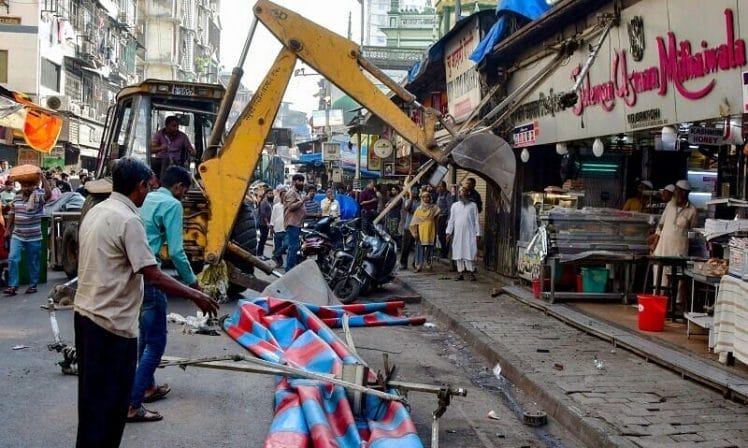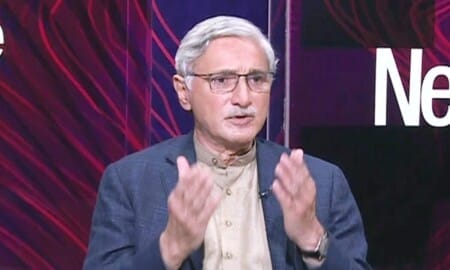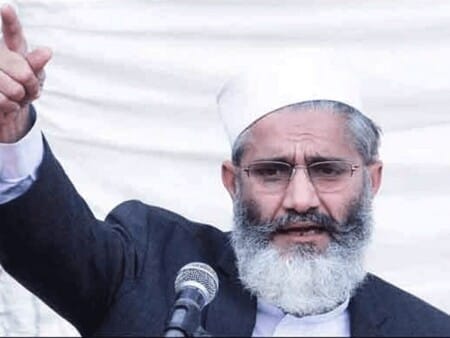The recent actions taken by authorities in Mumbai, India, in response to minor communal clashes, illustrates a profound and troubling reality within the realm of urban governance and sectarian dynamics. Following a period of tension, accentuated by the inauguration of a new Hindu temple by Prime Minister Narendra Modi, authorities employed heavy machinery to dismantle over fifty Muslim-owned shopfronts under the guise of a road-clearing initiative.
This sequence of events raises significant concerns about the transparency and fairness of the municipal administration’s motives. While officials assert that the operation was a “routine” clearing of illegal structures to facilitate pedestrian movement, the timing and selective targeting of Muslim-owned properties have evoked allegations of ‘bulldozer justice’—a punitive measure that seems to have become a sinister symbol of urban policy in areas governed by the Bharatiya Janata Party (BJP).
Read: Pakistan Targets Militant Havens in Iran Following Stern Warning
The depths of this issue are compounded by the historical backdrop. The temple that spurred celebration processions was constructed on a site that has been an inflammatory nexus of religious conflict since 1992. The demolition of the Babri Masjid in Ayodhya, which previously occupied the temple’s site, triggered some of India’s most heinous sectarian riots, baring the centuries-old fissures in the country’s religious fabric.
Critics, including Aaker Patel of Amnesty International, argue that the latest application of ‘bulldozer justice’ by Mumbai authorities embodies a policy of arbitrarily targeting Muslim properties in the wake of conflicts, thus exacerbating the vulnerability of the Muslim minority. Such actions, according to rights groups, defy the concept of lawful due process as victims claim to receive insufficient or no notice before the demolition of their properties, negating their right to legal recourse.
Potential legal frameworks designed to ensure urban development while respecting citizens’ rights appear to be sidelined in favor of swift and selective enforcement, often sidestepping the established process. The absence of an adequate notification period for the affected shop owners aligns neither with due process nor with the principles of fairness and justice.
Moreover, this approach elicits a broader question about the future implications of urban policy as a tool for sectarian discrimination. The use of state machinery as an instrument to target specific groups following episodes of violence or civil unrest holds the dangerous potential to normalize retributive justice, establish precedents for misconduct, and perpetuate systemic inequity.
The municipal officials’ engagement with the shop owners, or the lack thereof, reflects a disquieting disregard for stakeholder dialogue, suggesting a failure to incorporate proactive solutions that could help de-escalate tensions and foster inclusive urban planning. Instead of resorting to demolition, authorities might consider alternative, collaborative strategies for urban management that respect the rights and livelihoods of all citizens.
The manner and timing of the enforcement actions, and the selection of targets, signal a biased application of the law, eroding trust in the very institutions intended to serve the public without prejudice.
In conclusion, the unfolding situation in Mumbai highlights the urgent need for clarity, legality, and balanced governance.
As these events continue to develop, it is crucial for all stakeholders to engage in a transparent dialogue, grounded in respect for rule of law and human rights, to safeguard the diverse social fabric of the nation and prevent the propagation of divisive policies.
Only by restoring faith in an equitable legal system can the city ensure the protection and inclusion of all its inhabitants, irrespective of their religious affiliations.












